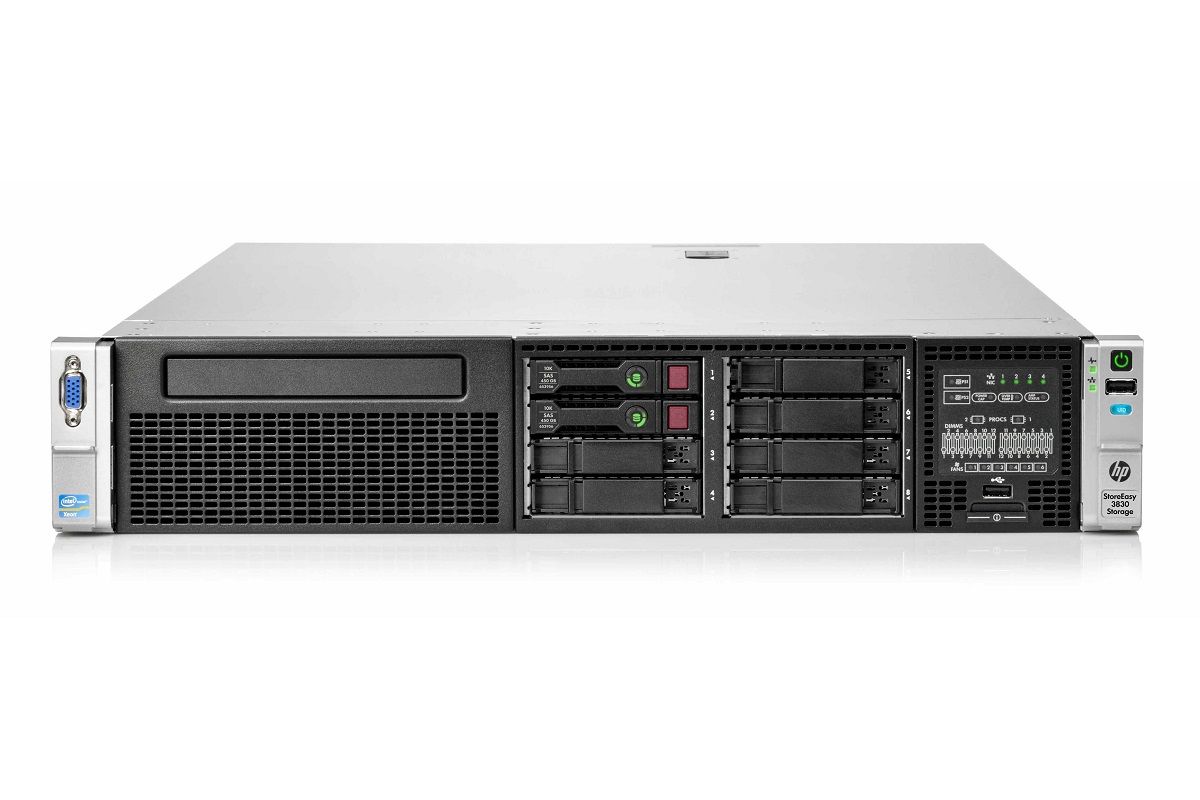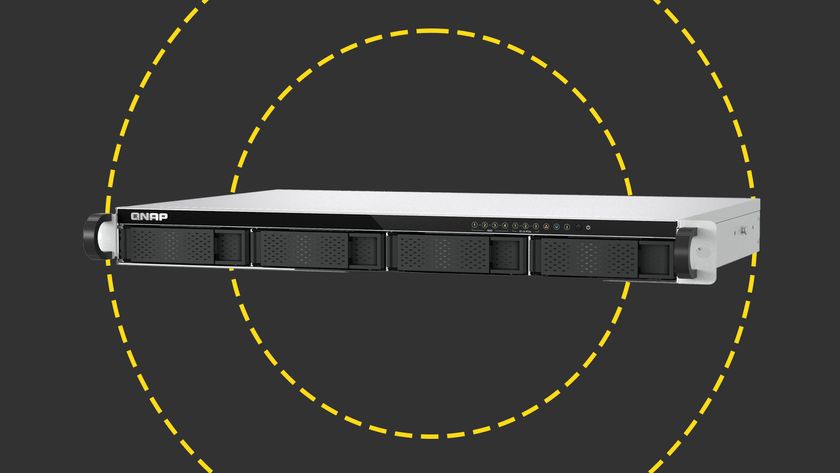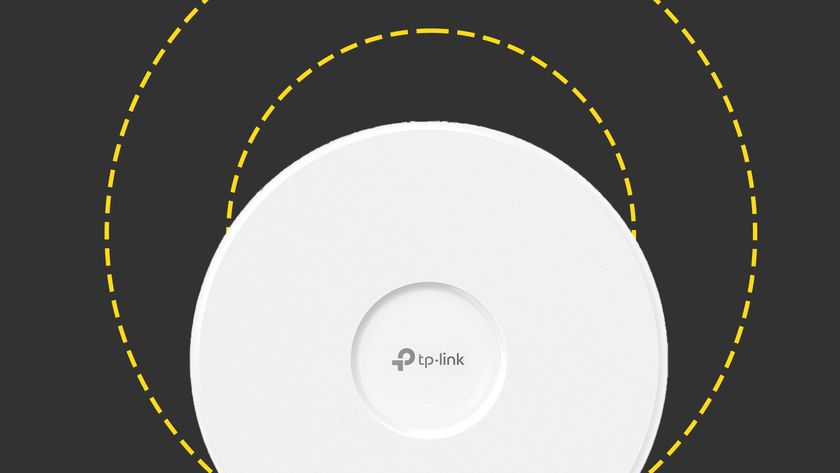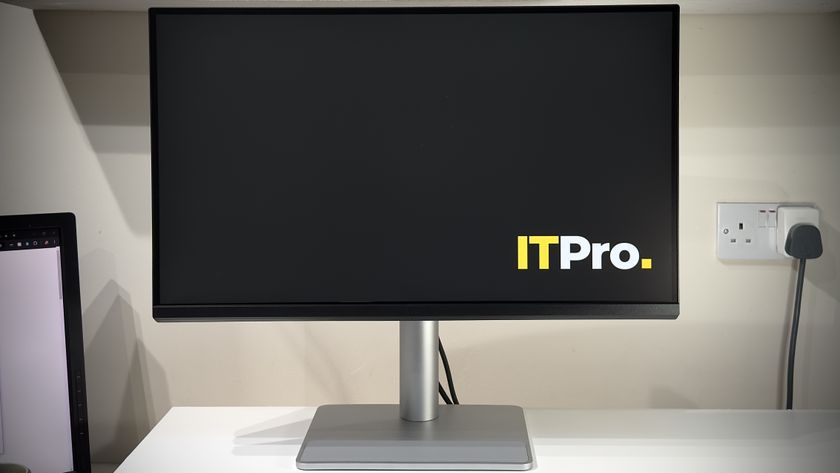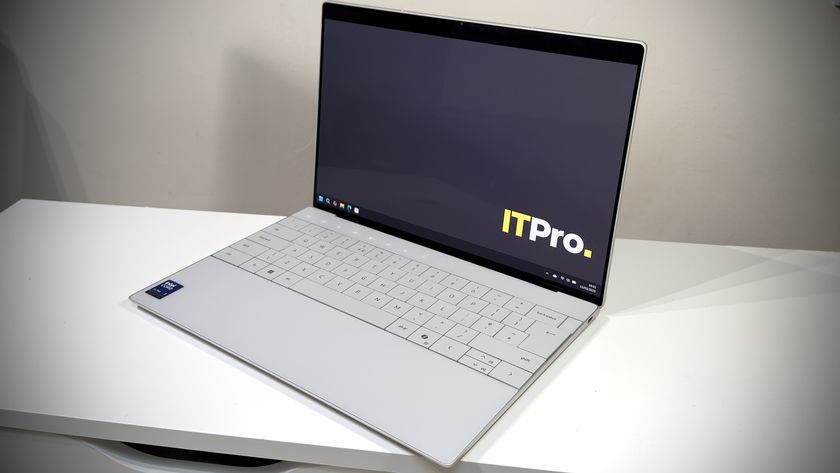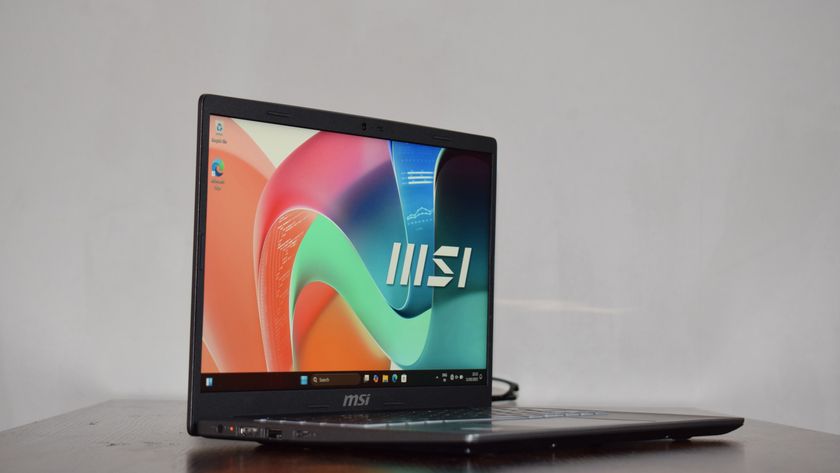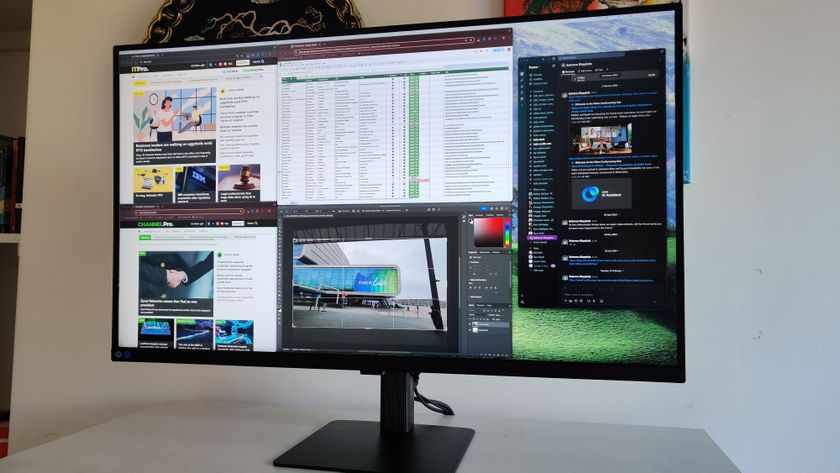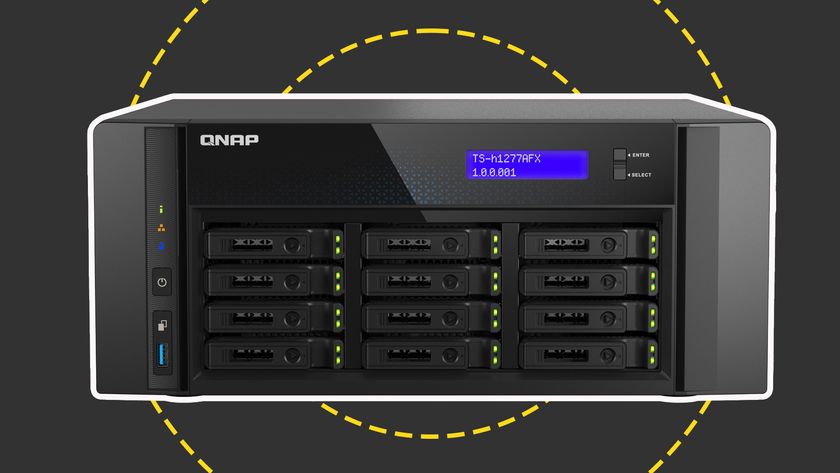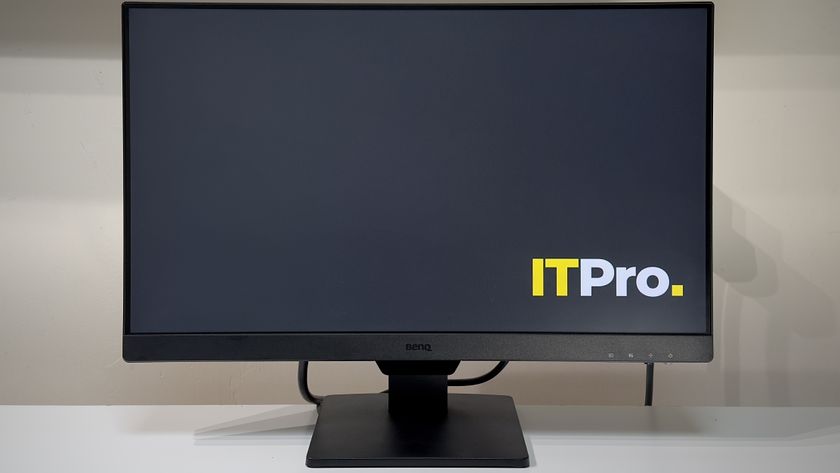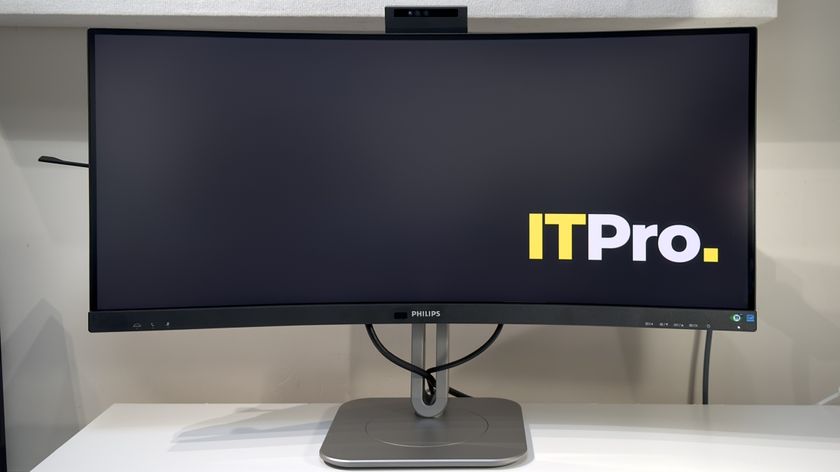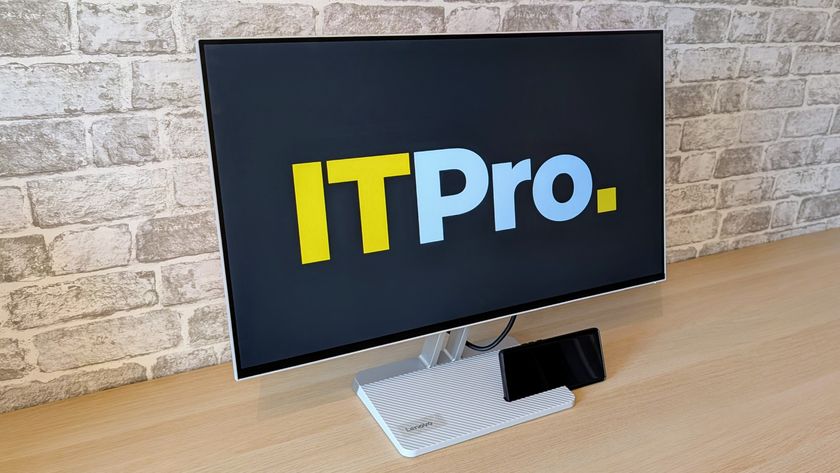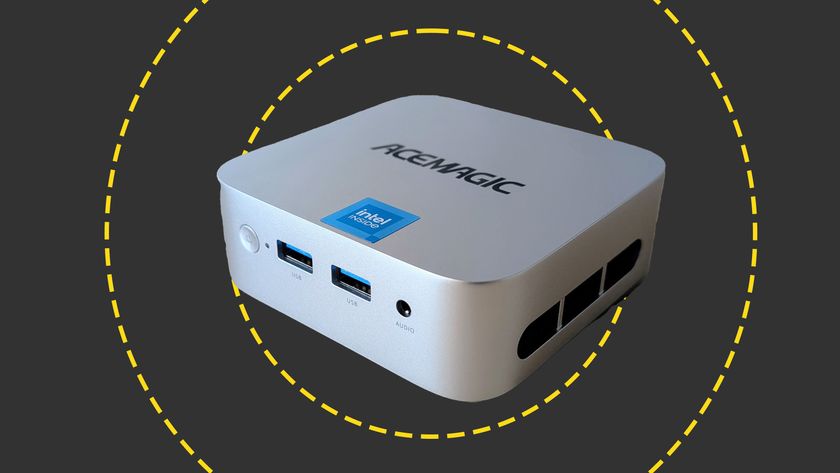Deployment and provisioning
Initial installation doesn't take long at all. This is largely due to the fact that, on first contact, you run through a quick setup routine to secure administrative access and activate licensing. At this stage, you also get the opportunity to set up a two-node cluster with a second 3830.
Then it's over to HP's StoreEasy System Manager, which handily provides plenty of help and links to all features of WSS2012. The 3830 comes with WSS2012 Standard which includes NAS and IP SAN operations, block-level deduplication, storage pools and thin provisioning, in addition to SMBv3 and NFSv4.1 support.
Provisioning is straightforward enough - regardless of whether storage is local or external. Storage pools allow you to mix and match drives of differing capacities and use them to create mirrored, striped or RAID-5 virtual volumes.
You can expand capacity on demand by selecting any free drive and adding it to the pool. Microsoft's thin provisioning works directly with storage pools so applies to all NAS shares and iSCSI targets within them.
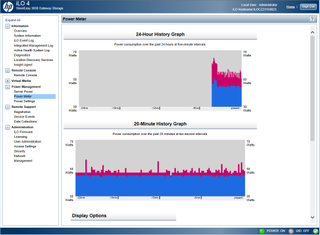
The 3830 includes HP's iLO4 Advanced which provides excellent remote management and monitoring features.
Shares and IP SANs
WSS2012 provides wizards for share creation with the Quick option filling in most of the boxes for you. The Advanced option lets you set access permissions, select properties to be used for file classification and data management rules and apply a share level quota.
For IP SAN creation you select a virtual volume and decide on a target name and size. The new WSS2012 access controls require initiators to be specifically assigned to a target so hosts need to be logged in first to view them.
The 3830 has the File Server Resource Manager enabled which brings storage reports, quotas and file screening features into play. This also includes file classification which can be used to apply policies to restrict access to specific file types.
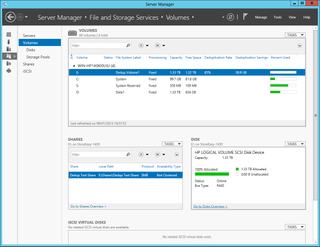
Microsoft's deduplication delivered excellent storage savings in our data reduction tests.
Deduplication and performance
As Microsoft's deduplication functions at the volume level, it can be applied to any type of storage. It's easy to configure as you set the number of days before files are processed, set up regular schedules or run it manually from PowerShell.
To test HP's data reduction ratios we used the Binary Testing dedup test suite and CA's ARCserve r16 with it set to use a mapped share as a disk based backup device. Using a 4GB data set of 1,000 files, we ran a standard backup strategy consisting of daily incrementals and weekly full backups.
After the first full backup had completed, we ran dedup from PowerShell and then modified two per cent of data in 40 per cent of files prior to each subsequent backup. At the end of a four week simulation we saw a very good reduction ratio of nearly 7:1 44GB had been sent to the appliance but only 6.5GB of space was consumed.
Share performance over Gigabit is nothing to sniff at either. With a share mapped to a Dell PowerEdge R515 server running Windows Server 2012 we saw Iometer report fast raw read and write rates of 113MB/sec.
Drag and drop copies of a 2.5GB video clip also returned fast real-world speeds of 108MB/sec. IP SAN performance is equally good with Iometer returning raw read and write speeds of 113MB/sec on a 500GB target.
Conclusion
The StoreEasy 3830 Gateway Storage provides an easy way of bringing disparate SANs and disk arrays under one roof. Running on a classy hardware platform, the integral Windows Storage Server 2012 offers a wealth of features and delivers good performance including high data deduplication ratios.
Verdict
With Windows Storage Server 2012 at its helm, the StoreEasy 3830 provides an easily managed solution for amalgamating existing storage arrays and SANs. Its hardware credentials are impeccable and expansion potential is limited only by the size of your back-end storage systems.
Chassis: HP ProLiant DL380p Gen8 2U rack server
CPU: 2.4GHz Xeon E5-2609 (max. 2)
Memory: 16GB DDR3
Storage: 2 x 450GB HP 10K SAS SFF hot-swap drives
RAID: HP Smart Array P420i with 1GB FBWC and capacitor
Array support: RAID0, 1, 10, 5, 50, 6, 60
Expansion: 3 x PCI-e slots (max 6 with 2 CPUs)
Network: 4 x Gigabit FlexLOM
Power: 2 x 460W hot-plug PSUs
Management: HP iLO4 Advanced with 10/100
Software: Windows Storage Server 2012 Standard pre-installed
Warranty: 3 year on-site NBD
Dave is an IT consultant and freelance journalist specialising in hands-on reviews of computer networking products covering all market sectors from small businesses to enterprises. Founder of Binary Testing Ltd – the UK’s premier independent network testing laboratory - Dave has over 45 years of experience in the IT industry.
Dave has produced many thousands of in-depth business networking product reviews from his lab which have been reproduced globally. Writing for ITPro and its sister title, PC Pro, he covers all areas of business IT infrastructure, including servers, storage, network security, data protection, cloud, infrastructure and services.
